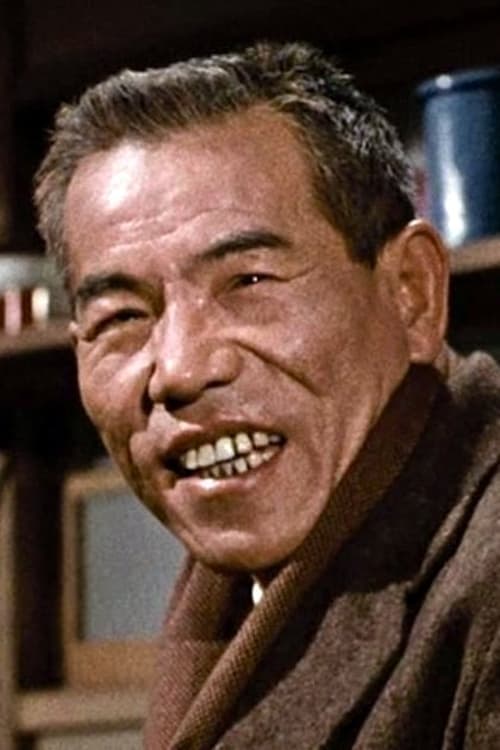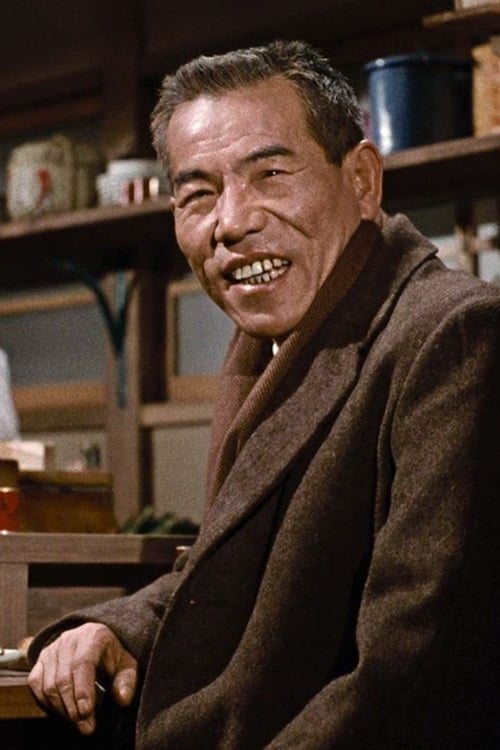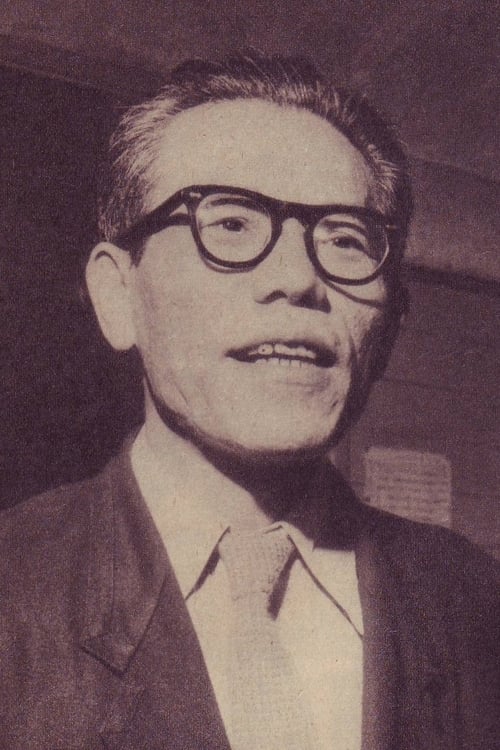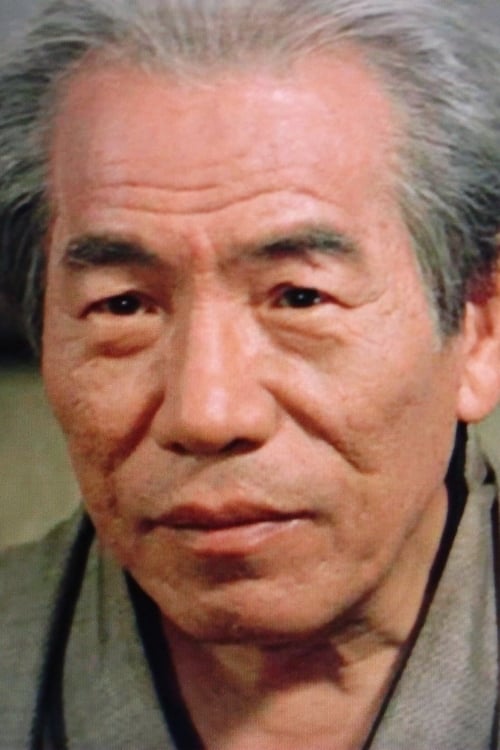
A narrative feature made from a collage of clips from various films around the world.
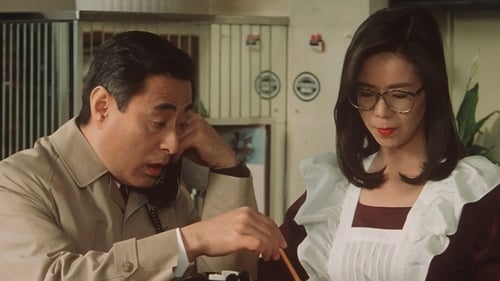
Prime Minister
The film stars two of Itami's regular actors, Nobuko Miyamoto as a geisha who brings luck to the men with whom she sleeps, and Masahiko Tsugawa as her unfaithful, sometimes partner. As well as showing her relationships with the man she loves and the men who employ her, it satirizes corruption and the influence of money in Japanese politics.
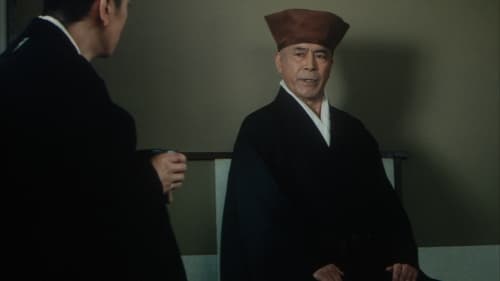
Kokei
Years after the death of legendary tea master Rikyu, his disciple Honkakubo attempts to resolve the mystery of the master's death.
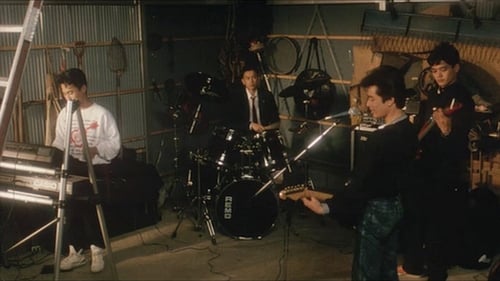
In a small town, high school students in their final year try to balance their studies while also playing together in a rock band.

Narration (voice)
A documentary about French illustrator Georges Bigot, who lived in Japan for 17 years and left behind many drawings depicting life and social conditions in the Meiji period.

The Story of the three Japanese castaways Otokichi, Kyukichi and Iwakichi. After their ship the Hojunmaru was damaged, they drifted to America and landed on the US-Westcoast in 1834. They had the wish to return to Japan, a long journey was awaiting them.
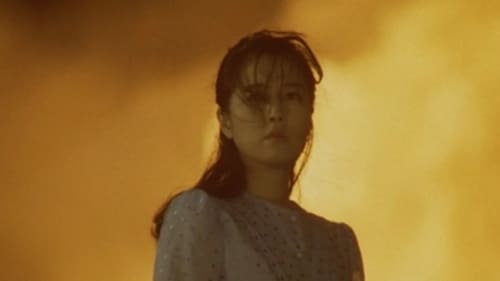
Eiji, also known as Choji, quits the shipyard to start Izakaya [Snack Bar] Choji with his wife Shigeko on the outskirts of Hakodate. Eiji once had a girlfriend by the name of Sayo, but she is supposed to be happily married to a pasture owner in the countryside. Then, suddenly one day Sayo shows up at Choji before opening. Sayo is still in love with Eiji. The story expressively portrays the lives of random Choji customers and the daily interaction between Eiji and Shigeko, while also focusing on the feelings between Eiji and his past girlfriend Sayo.

Self
An extremely lovely tribute to Ozu, on the 20th anniversary of his death. It uses a combination of footage from vintage films and new material (both interviews and Ozu-related locations) shot by Ozu's long-time camera-man (who came out of retirement to work on this). Surprisingly (or perhaps not), it focuses less on Ozu's accomplishments as a film-maker than on his impact on the lives of the people he worked with..

After the war-time government orders the disbanding of the Big-Six baseball league, the teams of Waseda and Keio universities play one final game before they are drafted into the armed forces and face the hardships of military service.
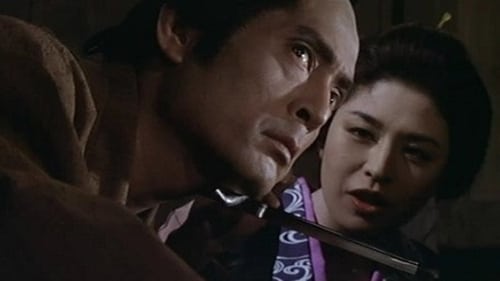
Shogen
Yataro Tanigawa, a one-eyed hired assassin, impresses yakuza boss Gomyo Kiyoemon with his skill. Gomyo hires Tanigawa as his bodyguard, or yojimbo, to protect him during an inter-clan conflict. Tanigawa quickly rises in stature in the clan, but finds his boss's enemies almost overwhelming.
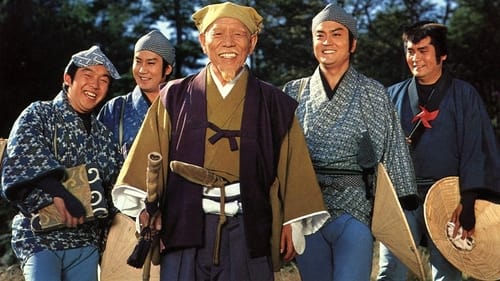
Tokugawa Mitsukuni
One of Japan’s most popular historical characters, former Vice-Shogun Tokugawa Mitsukuni, whose travels around the nation are legendary has made it to the silver screen in a dynamic and exciting tale featuring megastar Toshiro Mifune as an expert swordsman drawn into the action to fight injustice. The Elder Lord travels about disguised as a retired merchant with his two trusty bodyguards Sukesaburo and Kakunoshin by his side and secret agent Yashichi close by. After a chance meeting with a dying man and young woman who had been brutally attacked, they set out for Kaga Province to wreak vengeance on the responsible parties. Don’t miss this exciting journey into Japanese history!
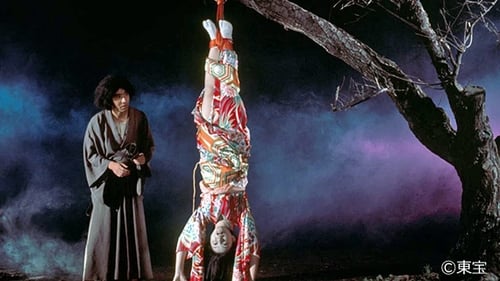
Kaemon Kito
A scruffy detective investigates the murders of three sisters on a small Japanese island in 1946.
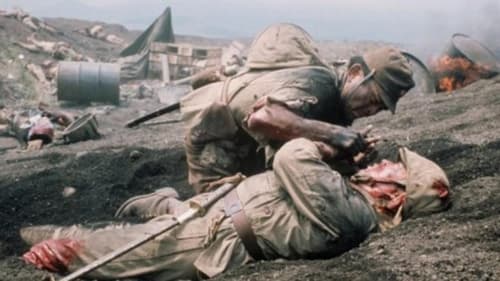
The Americans are swiftly closing on Okinawa, an island just south of the Japanese mainland. The Imperial command sends top generals and several army divisions to defend it at all costs. The mission quickly degenerates as vital resources and troops are diverted to other islands. After a civilian evacuation ends in tragedy most of non-combatants are forced to remain on the island. Many convert to soldier status. Tokyo sends mixed messages that squander time and resources, as when they order the defenders to build an airstrip for aircraft that never come. The truth soon becomes obvious: the high command decides that the island cannot be held and effectively abandons the Okinawan defenders. When the Americans land many troops are deployed in the wrong places. As the slaughter mounts, a suicidal attitude takes hold. Okinawa becomes a death trap, for civilian volunteers and non-combatants as well.

The struggles of a low-ranking samurai (Nakamura) coming to terms with the end of the Tokugawa shogunate and the end of Japan's feudal age with the 1868 Restoration.

Admiral Chuici Nagumo
In the summer of 1941, the United States and Japan seem on the brink of war after constant embargos and failed diplomacy come to no end. "Tora! Tora! Tora!", named after the code words use by the lead Japanese pilot to indicate they had surprised the Americans, covers the days leading up to the attack on Pearl Harbor, which plunged America into the Second World War.
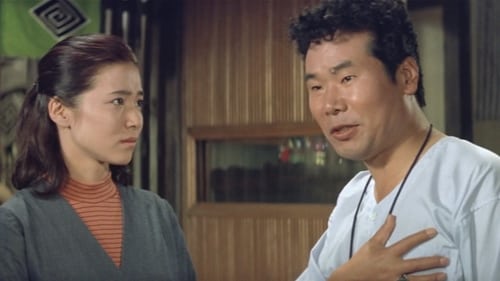
Sanpo Sensei
Kuruma Torajiro is discovered looking around Kyoto for someone special to him.
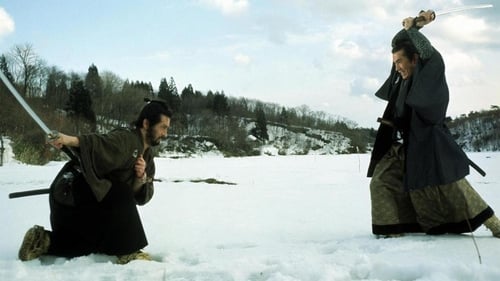
A guilt-haunted samurai warrior attempts to stop a massacre taking place.
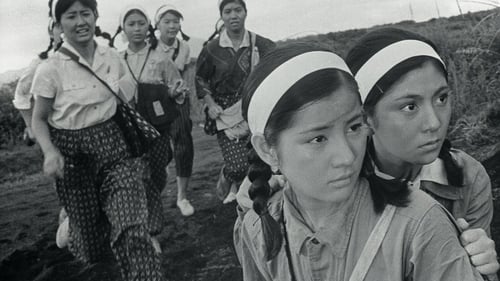
Nakaji, Principal
In 1943, critical developments in the Pacific War have placed Japan at a disadvantage, although the fiery breaths of war hadn't yet reached Okinawa Normal School for women. Nothing seemed the least bit out of the ordinary, as Kazuko and her friends enjoyed a day of sports. A year later the war takes a devastating turn, as US forces plan an amphibious attack known as "Operation Iceberg" on the Ryukyu island.

看守A
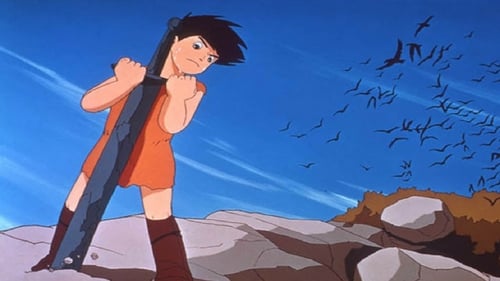
Ganko (voice)
Young Horus lives in a mythical Scandinavia of the Iron Age. Recovering the stolen Sword of the Sun from a rock giant, he learns he must travel to the lands of his ancestors, encountering the beautiful but enigmatic Hilda as his journey leads to a series of adventures.
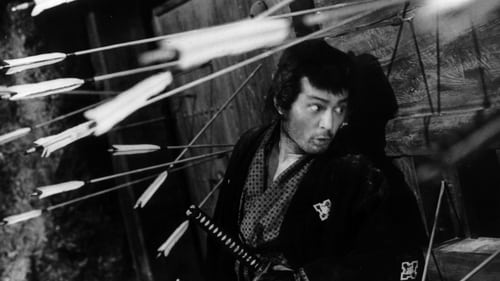
Hyogo Moriuchi
A pair of down-on-their-luck swordsmen arrive in a dusty, windblown town, where they become involved in a local clan dispute. One, previously a farmer, longs to become a noble samurai. The other, a former samurai haunted by his past, prefers living anonymously with gangsters. But when both men discover the wrongdoings of the nefarious clan leader, they side with a band of rebels who are under siege at a remote mountain cabin.

Kinbei Yaita
Well before “Shogun” as warring clans were fighting for power throughout Japan, a Portuguese vessel ran aground off Tanegashima. Lord Tokitaka helped Captain Pinto repair his ship. The grateful captain offered the lord a gift--a matchlock musket—the first firearm ever seen in Japan. But like a great stone hurled into placid waters, this simple gift will start a revolution. Tokitaka tasks Kinbei, his greatest swordsmith, to copy this musket and build guns for Japan. While Kinbei struggles to forge Japan’s first musket, a great love blooms between Captain Pinto and Kinbei’s daughter Wakasa. But for Kinbei, to let Wakasa marry Pinto and go to Portugal is unthinkable. And as Kinbei creates Japan’s first matchlock factory, Lord Oda Nobunaga will seize upon firearms as the key to sweep all other clans before him, tearing a blood-soaked path of destruction through Japan.


Narrator
In the year 1786, Shogun Ieharu Tokugawa selected beautiful Ochisa to be his concubine. It causes other concubines to become very jealous and mean. When the Shogun passes away, his concubines are forced to become nuns, which they are not happy to be. The subject is life inside a shogun's harem, and the treatment is again more restrained than in most of the historical pinku eiga films being produced by independents at the time, but the tone of this middle installment in the trilogy is decidedly more grim than that of its predecessor. There's a good deal of abuse and violence on display, as the shogun dies and his concubines are sent to a remote convent to become buddhist nuns. the hysterical nuns are being punished for their transgressions and committing suicide in grand exploitation fashion.

International thief Zivaco, who can assume any identity, eludes the authorities and battles rival thief WCWC for a rare gold samurai sword.

Soga
When a gifted Japanese craftsmen dies, his three daughters are summoned to decide who will take over the family ribbon business in this family drama. Only one daughter cares to carry on her father's work, but she is met with resistance from her stepmother. One sister cares nothing for the artisan tradition, while the other is an icy opportunist whose only love is for money. It is the daughter who cares the most for her father's work who wanders away in a symbolic journey of self discovery.
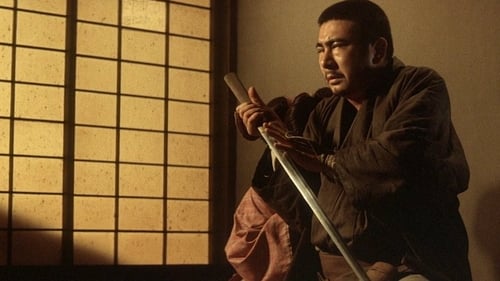
Senzo
Zatoichi comes upon the town of Tonda, overrun by gangsters. Using one of his favorite techniques, Zatoichi proceeds to win 8 ryo in a rigged gambling game. Of course, the local gangsters attempt to kill him, and the adventure begins. It turns out a blacksmith named Senzo examines Zatoichi's cane sword, and discovers it to be forged by his old mentor. Senzo discovers the sword is at the end of its usefulness and will break when it is used next.
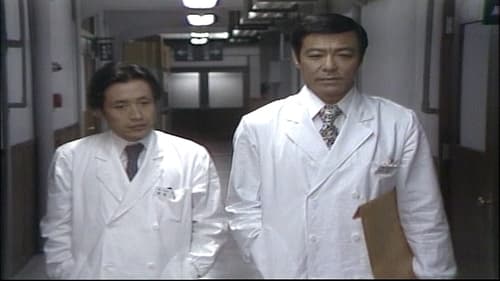
The story contrasts the life of two doctors, former classmates and now both assistant professors at Naniwa University Hospital in Osaka. The brilliant and ambitious surgeon Goro Zaizen stops at nothing to rise to a position of eminence and authority, while the friendly Shuji Satomi busies himself with his patients and research.
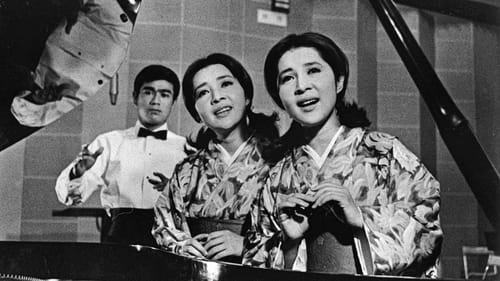
A song drama based on the autobiographical song "The sun is laughing" by composer Endo Minoru. It tells the story of a young man who moves to Tokyo with a big dream of becoming a composer, and despite the unfamiliar city life, sticks to his original intentions with the gentle encouragement of his young wife, and takes the music world by storm.

Neighbor / Writer
A well-respected drama teacher confesses to his housekeeper that the atomic bombing of Hiroshima has left him impotent. With the coming of spring, the sympathetic housekeeper suggests that the Master observe the Yobai , a custom in which the young men of a village steal into the bedrooms of susceptible women to have sex.

Marshal
Film by director Kenji Misumi

Following the journey of a caterpillar along the Japanese islands from Nagasaki to Hokkaido, this allegorical and oblique first feature film by Kuroki depicts in exquisite images a series of encounters and life's turning points.
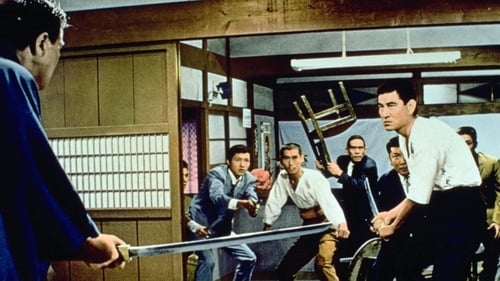
Upon returning to his hometown of Nagasaki, recently released prisoner Tachibana Shinichi must rejoin the Asahi gang family in order to pay back a past debt. Trouble brews when the rival gang that was responsible for sending him to prison learns of his return. Left with no alternative to their constant harassment and threats, Tachibana decides to take them on.

Ayako, a young woman from a rural fishing village, is sold by her family into a brothel when her father takes ill. There, she is quickly stripped of her innocence and illusions.
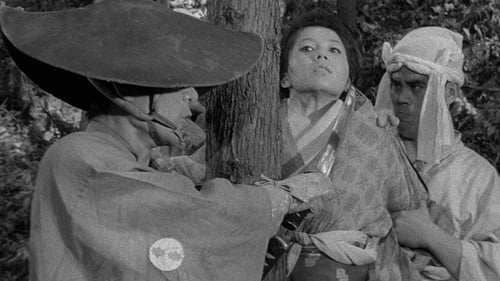
Minister
Legendary swordplay filmmaker Hideo Gosha's Sword of the Beast chronicles the flight of the low-level swordsman Gennosuke, who kills one of his ministers as part of a reform plot. His former comrades then turn on him, and this betrayal so shakes his sense of honor that he decides to live in the wild, like an animal. There he joins up with a motley group who are illegally mining the shogun’s gold, and, with the aid of another swordsman, gets a chance not just at survival but to recover his name and honor.

Based on true events surrounding a Korean student who had entered Japan unlawfully and escaped illegal alien internment.

The ghost of a samurai's wife takes revenge on her husband.

Goheiji
Aspiring to an easy job as personal physician to a wealthy family, Noboru Yasumoto is disappointed when his first post after medical school takes him to a small country clinic under the gruff doctor Red Beard. Yasumoto rebels in numerous ways, but Red Beard proves a wise and patient teacher. He gradually introduces his student to the unglamorous side of the profession, ultimately assigning him to care for a prostitute rescued from a local brothel.

The 22nd film in the Shacho comedy series.
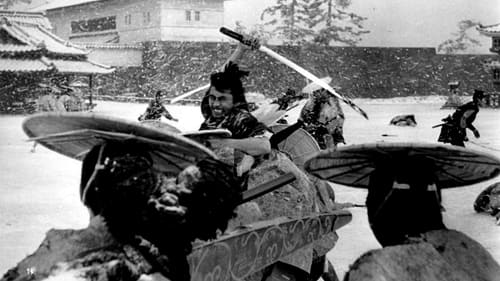
Masagorō Kisoya
Japan, 1860. The men of the Mito clan, victims of the Ansei purge, anxiously prowl around the Sakurada Gate of Edo Castle with the intention of assassinating Naosuke Ii of Hikone, tairō of the Tokugawa shogunate and responsible for their misfortune.

The last judgment.

Sabu was once a boy soldier but people in his village disliked him. He finally broke loose when his land was taken.

Shigesuke Hayashi
It is 1922 and Fumiko is a high school student. Her family is poor but she loves to study literature. Her father, a peddler, does not return home and Fumiko finds herself in financial trouble, not being able to pay for her schooling and her school excursion trip. Still, she gets a temporary job at a factory and tries to make ends meet. A film about bright side of youth adapted from the television serial of the same name.
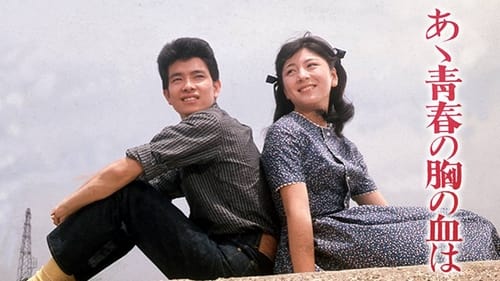
Kunio Shimizu, a sailor of Tohto University, helped a girl that was chased by someone on her way home from practice.The girl went away without saying anything, leaving her wallet with Kunio. A few days later, she visited Kunio. She was working at a toy factory called Tomoko Nishizawa. Kunio naturally became attracted to Tomoko, but for some reason Tomoko refused to talk about her past. One day, the two went to the bowling alley and were approached by Tempira...
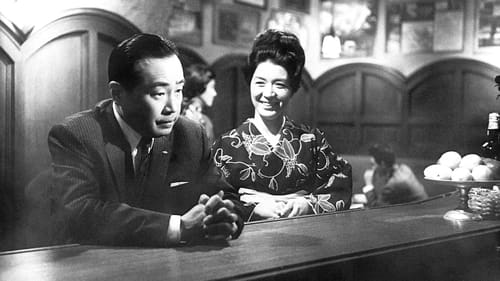
Kosugi, president
The executive director of the «Chuo Shoji» company, Hidaka Shiro, is called a "demon of work", but the hostess of the bar calls him "the loneliest person in Japan." He lost his wife ten years ago and has been living as a widower ever since. He plotted to marry off his 22-year-old daughter Keiko for political gain, but Keiko is in love with Okuda, who is her father's subordinate. A story full of sadness and joy, depicting a man gripped by different thoughts, as an employee of the company and a father.
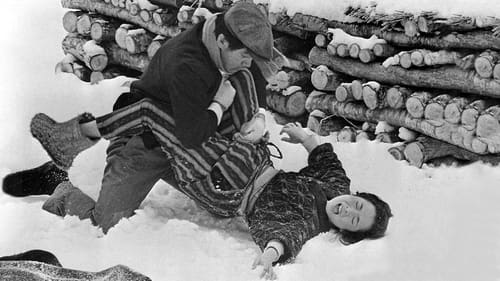
A sake factory worker on holiday returns to his home town, where he rapes the wife of one of his co-workers in the forest. The other man returns home to find his wife changed and suspects that she has been unfaithful.

Mototsugu is the younger son of Akira Sakawa, a director of an advertising agency whose mother, Nobuko, is ill with cancer of the liver. His elder brother, Ichiro, works at the Bank of Japan whose wife, Masuko, is from a very high-class family. Mototsugu becomes disgusted with such strait-laced living and leaves home to marry Yoshiko, a blind masseuse, and they live in a small apartment near a pinball parlor where he works.

Yasuoka
Muraki, a hardboiled Yakuza gangster, has just been released from prison after serving a sentence for murder. Revisiting his old gambling haunts, he meets Saeko, a striking young upper-class woman who is out seeking thrills, and whose presence adds spice to the staid masculine underworld rituals. Muraki becomes her mentor while simultaneously coping with the shifts of power that have affected the gangs while he was interred. When he notices a rogue, drug-addicted young punk hanging around the gambling dens, he realizes that Saeko's insatiable lust for intense pleasures may be leading her to self-destruction.

Haiya
In the fourth installment, Musashi's potentially greatest opponent Kojiro jumps in and out of the story at the oddest and most coincidental moments. As his great love Otsu has succumbed to madness. Musashi then sets off to beat the functionaries of a treacherous clan in an arranged duel. 73 against one. Boastful Kojiro watches, secure in the knowledge that only he is a worthy opponent.

[Period covered: 1595-1600] Third film in the famous shinobi no mono series. We last saw ninja Ishikawa Goemon (Raizo Ichikawa), as he was about to be boiled alive. But a good ninja is both hard to find, and even harder to kill. With the help of the enigmatic Hattori Hanzo, Goemon lives to skulk another day, and sets his sights on bringing down the warlord who tried to turn him into soup – Toyotomi Hideyoshi. And as always, in the background, the suble hand of Tokugawa Ieyasu is pulling strings as he plots to rule all of Japan!
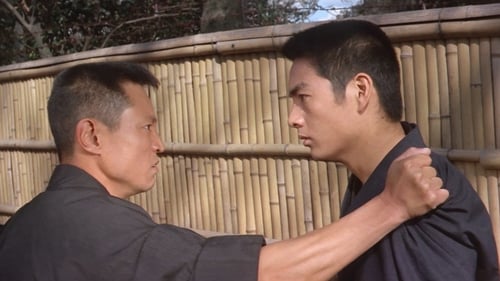
Ryuji Oshima, a gambler, kills Saiga in self-defense, and considering himself unfit to lead men, secludes himself in a temple to atone for his misdeeds. At home, when his mother, the boss of a construction gang, bids for and gets the job of building the Town Hall, other gangs set out to disrupt her business and try to kill her.

This is one of the most powerfully effective ninja films that dispenses with the silly magic of earlier efforts, and concentrates on an excellent story with expert fighting. Sena Denemon is the rarest of government officials, a man of integrity, sent on a mission to uncover the corruption that ran rampant during the Edo Period. Refusing bribes, and willing to put his life on the line to raise his son properly, heinfuriates the corrupt Inspectors; thus endangering his own life. Along with his two trusted vassals, he makes a brave effort to alert the Shogun to the plot which is being carried out. After the battle, his son Ichitaro joins the Chichibu ninja group in order to master fighting so he, too, can fight the forces which have brought about so much suffering.

In 1730, the Tokugawa Shogunate orders the Yagyu Clan to repair a huge shrine. Since it cannot refuse the Shogunate's request, the impoverished Yagyu Clan tries to raise funds by obtaining a sword which holds the key to a wondrous, hidden treasure. After learning the sword's secret, Tange Sazen sides with the Yagyu Clan, but his motive seems to be more than just pure interest in the treasure...
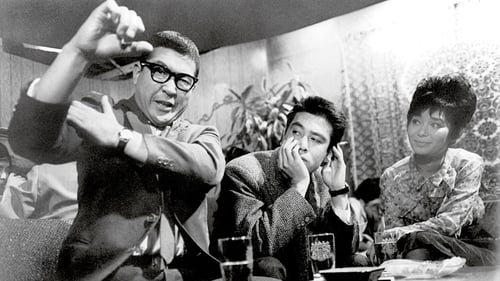
Akiharu
A salaryman's drunken ravings in public attract the attention of journalists who coerce him into telling them his life's story.

With her family suffering from extreme poverty, Yuko, as the eldest daughter, is sold to a successful brothel in Kyoto. There she is assigned to serve Takamatsu, one of the brothel’s top customers. But while Takamatsu falls madly in love with Yuko, she finds herself attracted to a young priest named Kunugida. Torn by jealousy, Takamatsu hatches an evil plan to tear them apart.
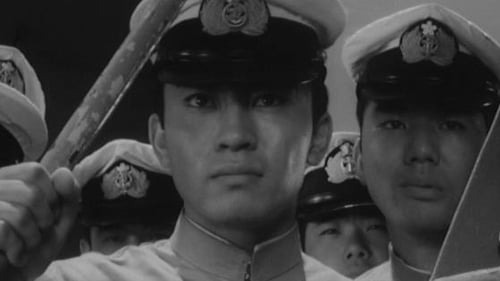
A tale of two best friends in the WWII era Japan. Takao is a young man enthusiastic about joining the navy to fight for his country. He convinces his best friend Shinji to join him. As it turns out, however, Takao's poor health prevents him from entering the navy while his friend is chosen instead. As time goes by, Takao becomes a painter and changes his mind about the meaningfulness of war and fighting, while his friend goes the opposite path. Meanwhile Takao's sister falls in love with Shinji.
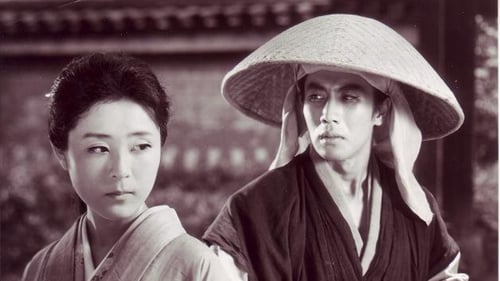
Toyotomi Hideyoshi
[Period covered: 1582-1594]. As the film opens, the warlod Nobunaga Oda rides to Iga Ayanokuni shrine. He is asked if he thinks he has destroyed all the ninja who opposed him and answers that he suspects that there may be more. A servant brings water and tests it first. The paige dies and we hear gunshots as two ninja flee the scene. His suspicions confirmed, Nobunaga oversees the execution of captured ninja and decides that, in the future, he needs a much crueler method of execution. The daimyo Hideyoshi comes to visit.

Goro
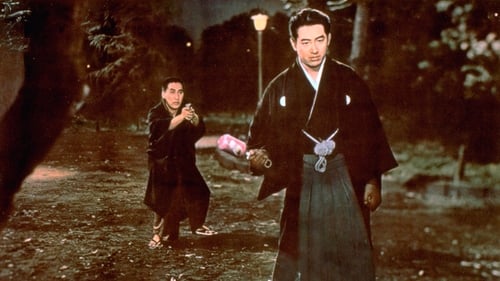
Upon his release from the prison, Hishakaku joins the Kikkyo family who is struggling to regain their turf from their rival, Domoto family. To reciprocate the kindness of the Kikkyos, Hishakaku heads to meet the leader of Domoto, Osumi, and finds himself emotionally involved with her.
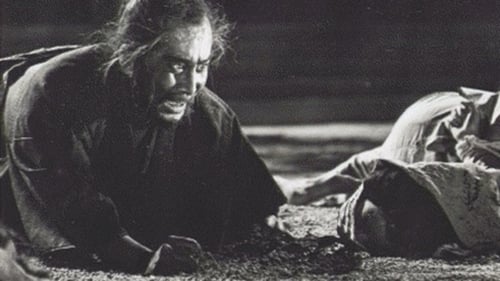
Shibiku-Shosuke Hori
After a salary-man's fiancée attempts suicide, he recounts his gruesome family history which saw generations of his ancestors suffer and sacrifice themselves for the sake of their cruel lords.
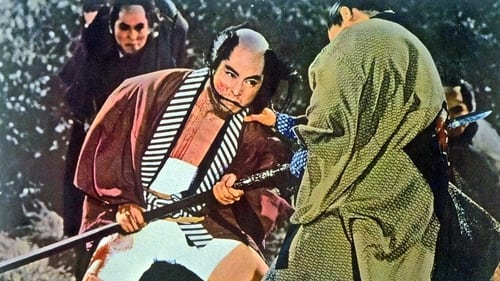
Gonza was a handsome young laborer, a footman and spear-carrier, working hard for his meager wage. All Gonza wanted was to marry his young sweetheart, but despite their mutual poverty, her status as the daughter of a samurai blocked their path to happiness. A chance opportunity to achieve samurai status would come one day, but Gonza will regret trusting the so-called honorable samurai who extended this fateful offer, and the terrible price he'd pay, fighting for his life in one of the most blood-spattered samurai battles ever filmed.

A young factory worker struggles to figure out what she wants to do with her life.

Factory Worker
An executive of a shoe company becomes a victim of extortion when his chauffeur's son is kidnapped and held for ransom.

Sosuke Otomo
In this Japanese drama, a dry goods merchant's daughter is surprised to discover that she has a twin sister. In rural Japan it was thought that twins bring bad luck, so the sister was abandoned at birth. Later her parents tell her that her sister was kidnapped. The woman doesn't believe this and when she eventually meets her twin, both women are involved in love affairs. The merchant's daughter is seeing an educated fellow. Trouble ensues when she begins suspecting that he may be more interested in her sister.

Jinzaburô Kamo
Fifteen years after Ishida Mitsunari lost in the battle of Sekigahara, Tokugawa Ieyasu foresees his unavoidable battle with Toyotomi Hideyori and goes into Fushimi Castle. At the night, Hattori Hanzo, the leader of 36 Iga members who were performing as guards of the castle, perceives the existence of a ninja and captures the mysterious sneaker.

A dark family secret sends a 21-year-old French student (Hoshi) on a journey of self-discovery.
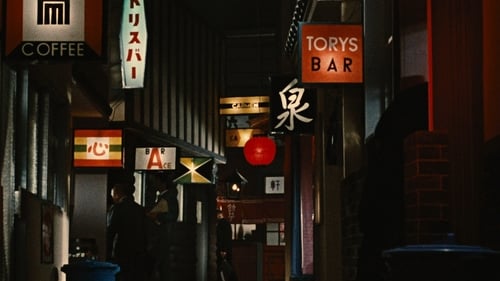
Sakuma, The 'Gourd'
Shuhei Hirayama is a widower with a 24-year-old daughter. Gradually, he comes to realize that she should not be obliged to look after him for the rest of his life, so he arranges a marriage for her.
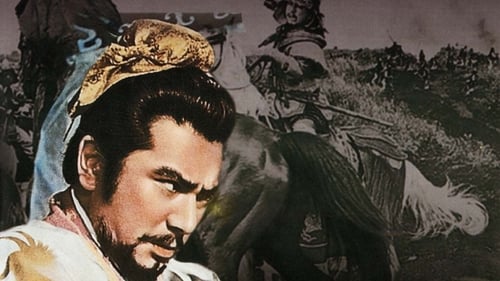
Li Tang
In 221 BC, Qin Shihuangdi conquered the rest of China. Qin's great accomplishments and also his serious faults are showed in this film. Qin adopted autocratic dictatorship and led a luxurious life: abolition of feudalism and the centralization of power in the form of a now-hereditary bureaucracy loyal to himself; burning books and burying scholars; the construction of a sumptuous palace for his concubines and also the Great Wall.

Japanese drama.

Japanese action film.

Grandpa Yoshi
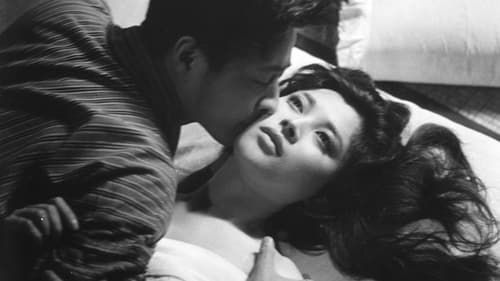
Yoshida’s first big-budget production and colour film is a haunting tale of unrequited love and postwar disillusion. The story of the fatal attraction between a spineless intellectual and a strong woman is conventional, but its enactment is radically new.
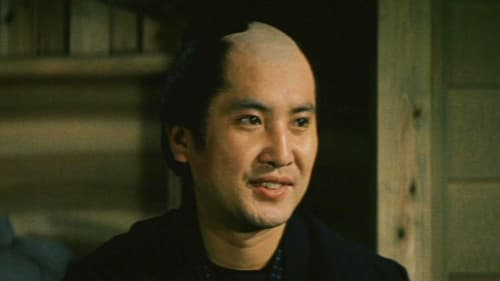
A carpenter, Shigetsugu, learns a lesson of love and humanity from five orphaned children and an affectionate woman named Oritsu. It's a winning combination of drama and humor. The warm friendship that grows between the carpenter, the woman and the children making this into a true masterpiece.

Friendship between an ambitious young thief and an artist during the Warring States period.

Ishiguro, Tatsugoro (Jun's father)
Set in Kawaguchi in the early 60s, this simple story chronicles the lives of foundry families and one girl's dreams of higher education.
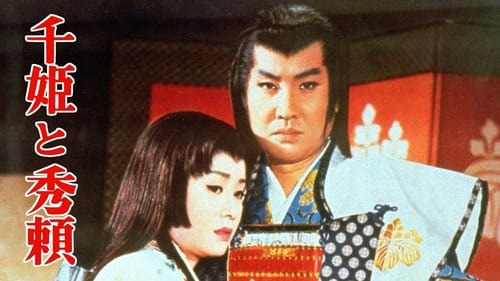
Tokugawa Ieyasu
From the late 1500's through the founding of the Tokugawa Shogunate many battles were fought as the great warlords vied for power over the nation. Princess Sen, a daughter of Tokugawa Ieyasu, is caught amidst the family feud between the Tokugawa and Toyotomi families. When her father Lord Tokugawa Ieyasu attacks her husband Toyotomi Hideyori's castle, her life takes a sudden turn for the worse. Will she ever find peace in her life again? One of Hibari Misora's most memorable performances, a movie you will never forget!

Father
When two sisters fall in love with the same man, one must decide to look elsewhere.

A touching story of a girl who sails away from her love to keep her family together.

A group of four chorus singers leave their hometown in Kyushu and go to Tokyo to become stars. It’s a musical comedy that shows Segawa’s talent.

A touching story about a young boy, Genta, who bravely takes on life's challenges in hopes of finding a better life for himself and his sickly mother.
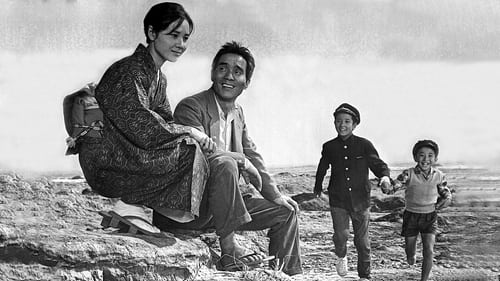
Little dark-eyed boy Kazuo. Yes, he dreamed of the sea. However, like everyone here in the village. Kazuo only wanted to study first, to finish school... But he failed. Mother died. The woman who replaced her brought with her affection, comfort, and warmth of mother's hands. It seemed that joy settled in their house again. But one day a storm caught the fishermen at sea. Father did not return... Father's friends, fishermen, tried to help the widow, who was left with two children. But the money was still not enough. And then Kazuo decided to become a fisherman. After all, he was now the eldest in the family...

Suratha
An Indian prince leaves his world of comfort and riches behind to wander and meditate for six years in search of spiritual enlightenment. Siddartha (Cojoin Hong) turns his back on the old religion when people are starving needlessly and holy rituals include human sacrifices. During his meditations, he is tempted by erotic dancing women, demons, and the evil machinations of his criminal cousin. Devastate to attain the spiritual perfection and become the Buddha. He travels to convert followers by his kindness and wisdom, gaining a multitude of believers when he stops an elephant from crushing a local priest. Buddha of course goes on to become one of the great religious leaders of the world.

This Japanese film speculates on the events which lead the U.S. and the Soviet Union into a nuclear Armageddon.

Japanese comedy film.
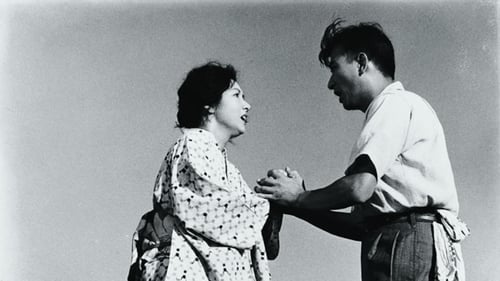
Policeman
The year is 1932, and a woman, whose tenant-farmer fiancé is fighting in China, is raped by the landowner's son, who has returned from the war with a crippling injury, and then forced into marriage with him. In four more chapters, presented over three decades, their children undertake their own searches for love, while the parents try to make each other as miserable as possible.
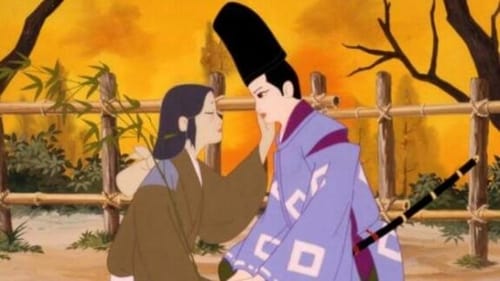
Sanshô Dayû (voice)
After their father quarrels with local military men, Anju and Zushio are forced to flee, but they are captured and sold into slavery. When their mother dies, they are sold to Sansho the Bailiff, a cruel man who subjects them to hideous torments. While Anju falls into a lake and is transformed into a swan, Zushio escapes and after being adopted to a nobleman grows to a young man. He will then fight to defeat the evil Dayu and free all the slaves.
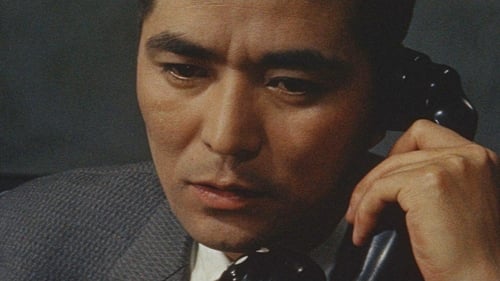
An employee at an oil cartel (Mihashi) is haunted by an act years before when he euthanized a fellow soldier when the two were adrift at sea during the Pacific War. Matters are complicated further when he falls in love with the soldier's younger sister (Tsukasa).

A young son of a master of the Kuwana clan gets disowned for his rebellious behavior. After he goes from the mountains to the ocean defeating the evil, he becomes a fine man.
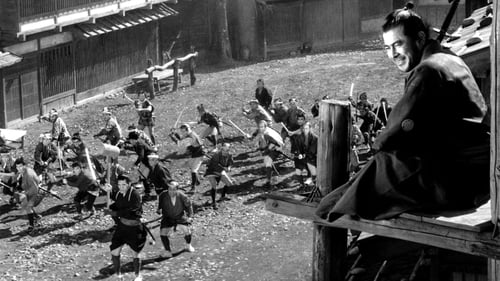
Gonji, Tavern Keeper
A nameless ronin, or samurai with no master, enters a small village in feudal Japan where two rival businessmen are struggling for control of the local gambling trade. Taking the name Sanjuro Kuwabatake, the ronin convinces both silk merchant Tazaemon and sake merchant Tokuemon to hire him as a personal bodyguard, then artfully sets in motion a full-scale gang war between the two ambitious and unscrupulous men.

When a former artisan is tricked into putting his sister up as collateral for a loan by a gangster boss in a crooked gambling casino it sets in motion the story of Ooka Echizen, the famed magistrate of Edo during the reign of Shogun Tsuneyoshi. In a world where humans bow down to dogs and are beheaded for harming them, it's a wonder people can survive at all. Nakamura Kinnosuke is a former samurai who has left the fold to live freely and must put his life on the line to save the girl he loves, and rescue her from the yakuza who duped her brother. When the truth comes out about his background, he is forced to take on the role of Edo Magistrate, a decision that brings him unimaginable heartache and danger!
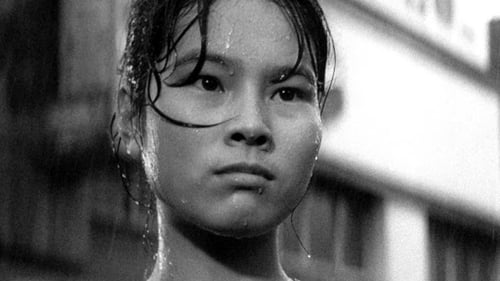
Kan'ichi
In the city of Yokosuka, Kinta and his lover Haruko, both involved with yakuza, brave the post-occupation period with a goal to be together.

It's a story of the life of a man who advocated the necessity of sex education to children, which was unusual at the time, solely opposed to the amendment of the Peace Preservation Law, and was assassinated by a rightist prior to his opposition speech.

Seisaku Kajiwara
Kohei Misugi works in a vegetable market, but his ambition is to be a photographer. He is given his first opportunity to demonstrate his talent by the Sakura Film Company which offers him an assignment to "Cover Tokyo" with a camera. But he is disillusioned when he is told he must work together with Miharu, a good looking girl in the film company's publicity department. Then the fun begins.
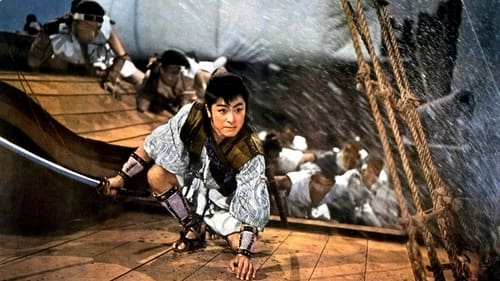
Finding more freedom on the high seas than in war-torn Japan, the 'Bahansen' (Pirate ships) based on the Seto Inland Sea during the Warring Period (Sengoku-jidai)sailed to China, Korea, Luzon, and Siam under the Hachiman banner. A battle for supremacy of the seas begins when a strange old shipwreck survivor is brought to Sakai where he divulges a secret that can change the course of history.One of the most literate and well-written films from Toei, this is an exciting tale of swashbuckling samurai on the high seas!

In this Japanese drama, a village girl goes to Tokyo and becomes a hooker to support her ailing mother. While there she meets an unmarried teacher (at least he says he's unmarried) and falls in love. When she learns that he lied and is married to a woman whose child was fathered by another man, she is crushed. He returns to his wife. The woman becomes more distraught when she learns her uncle has misused the money she has sent. As the final straw, her mother dies, and the girl becomes sick.
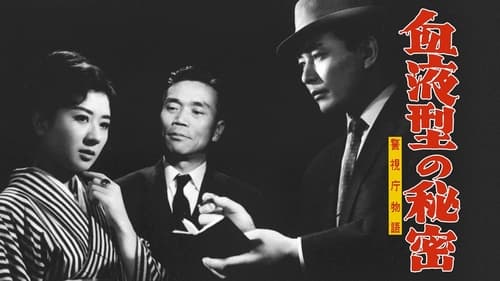
On a quiet spring day in the suburbs, a stray dog found the corpse of a baby. Three days after his death, the blood group of the victim was determined. Detectives Hayashi, Kaneko, Nagata and Yamagata begin their investigation, suspecting the parents of the murdered child. They use a towel, baby diapers and bruises on the baby's body as clues in the investigation. Who killed the baby?
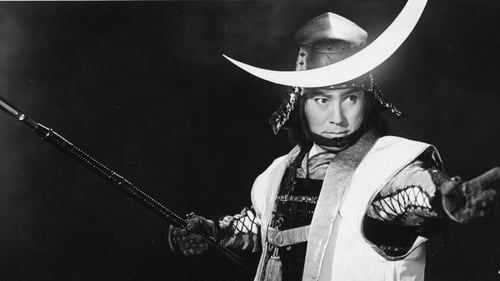
This subversive period film features a hotheaded young samurai, Kurodo, who threatens to commit harakiri in response to the humiliation meted out to his family by the Shogun. The film critiques the inhumanity of feudal obligations, and Uchida’s direction slyly satirizes the contemporary cinematic audience, whose taste for onscreen bloodshed is mirrored in a crowd gathering to watch the protagonist’s planned suicide. The Master Spearman is imbued with Uchida’s characteristic blend of dark humor and stylized action, and Ryutaro Otomo gives an admirable performance in the lead.

Genkichi Miyashita
Detective Tarao investigates the deaths of police officers who were involved in solving a kidnapping case.

Kansuke
Chuji Kunisada returns to his home village to find that Jubei Matsui, the corrupt magistrate, has been responsible for virtually destroying Kunisada's family. A final tragedy leads Kunisada to join with a band of rogues living in the forest in robbing from the rich and giving to the poor, always with an eye toward avenging himself on Magistrate Matsui.

The story of a certain engineer from his youth until he retired from the Japanese National Railways after the war .
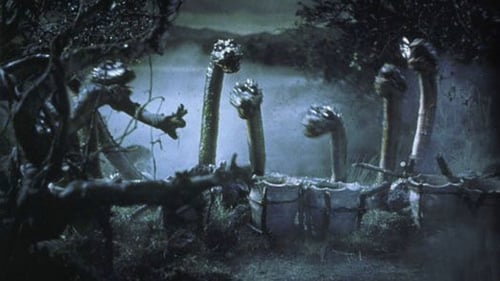
Ootomo
The legend of the birth of Shintoism. In Fourth Century Japan, the Emperor's son Ouso expects to succeed his father on the throne, but Otomo, the Emperor's vassal, prefers Ouso's stepbrother, and conspires to have Ouso die on a dangerous mission he has contrived. But Ouso prevails in the mission and returns to his father's castle under a new name, Prince Yamato Takeru. Otomo plots to have the Prince sent into even greater danger, but Otomo is unaware that the gods have favored the Prince and the outcome is far from what any of them expected.

Drama which shows the struggle of Fumiko, a female teacher, at work and at home.

The adopted son of an Osaka courier falls in love with a prostitute and, discovering that she is about to be purchased by a client, steals money from his employer to redeem her. Hunted criminals, the two young lovers take flight to Yamato, but, as in Chikamatsu's other domestic tragedies of love and duty (known as sewamono), they must be pursued and their passion destroyed by death. Favourite Uchida themes, such as the indenturing of a prostitute (cf. YOSHIWARA; A BLOODY SPEAR AT MT. FUJI), and his characteristic emphasis on performance and theatrical artifice re-emerge here; but the daring device of having Chikamatsu appear as a character - not unlike having Shakespeare interpolated into a film adaptation of one of his plays - is just one of many surprises this remarkable film holds. “Extraordinary” (Donald Richie).

Detective Kuwashima
A promising post-graduate literature student is transformed into a psychotic killer following the suicide of his father and a sleazy affair by his mother with a younger man.

Tomizawa
A lighthearted take on director Yasujiro Ozu’s perennial theme of the challenges of intergenerational relationships, Good Morning tells the story of two young boys who stop speaking in protest after their parents refuse to buy a television set. Ozu weaves a wealth of subtle gags through a family portrait as rich as those of his dramatic films, mocking the foibles of the adult world through the eyes of his child protagonists. Shot in stunning color and set in a suburb of Tokyo where housewives gossip about the neighbors’ new washing machine and unemployed husbands look for work as door-to-door salesmen, this charming comedy refashions Ozu’s own silent classic I Was Born, But . . . to gently satirize consumerism in postwar Japan.

Follows the life of Tsuru, the poor daughter of farmers in Shinshu, Japan.

Policeman
Kiku and her brother Isamu are social outcasts, children of a prostitute mother and black GI father, in postwar Japan.
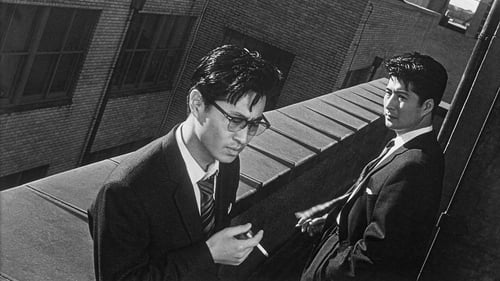
Yoshikawa and Kaji are alumni - Yoshikawa leads a life loyal to his company Toho Corporation, whilst Kaji works in the underground world for Aoyama, a fixer trying to buy Toho out. One day, Yoshikawa is ordered to take a look into the information leakage which had resulted in a serious fall of the company stock price. Following his order, Yoshikawa reunites with Kaji but their relationship gets complicated through the presence of Akiko, the daughter of Kubo, chairman of Toho Corporation. There is an obvious financial conspiracy and several men are killed - Who is the true mastermind behind all the plots?


(uncredited)
After handing in a report on the treatment of Chinese colonial labor, Kaji is offered the post of labor chief at a large mining operation in Manchuria, which also grants him exemption from military service. He accepts, and moves to Manchuria with his newly-wed wife Michiko, but when he tries to put his ideas of more humane treatment into practice, he finds himself at odds with scheming officials, cruel foremen, and the military police.

The common-law wife and daughter of a wealthy old man plot to murder him and steal his fortune, with the help of their male acquaintances.

1958 Theater of Life adaptation.

A film about the life of Kiyoshi Yamashita, a Japanese painter with disabilities.

A young, struggling couple are making every sacrifice so they will one day in the not-too-distant-future, have enough money to get married. As they have agreed on this procedure, it comes as a shock to the young woman to find out from her husband-to-be that he just loaned all the money they had saved to a friend. She is understandably miffed, and a big disagreement results. But after some time goes by, she discovers why the friend needed the money so badly, and the couple are back on solid footing again.

Japanese drama film.
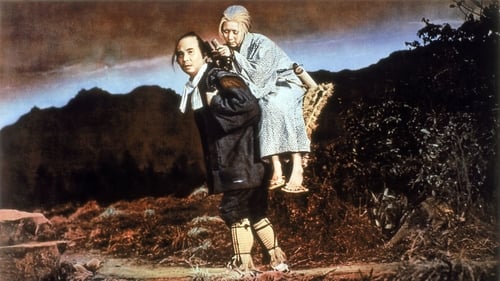
Messenger
In Kabuki style, the film tells the story of a remote mountain village where the scarcity of food leads to a voluntary but socially-enforced policy in which relatives carry 70-year-old family members up Narayama mountain to die. Granny Orin is approaching 70, content to embrace her fate. Her widowed son Tatsuhei cannot bear losing his mother, even as she arranges his marriage to a widow his age. Her grandson Kesa, who's girlfriend is pregnant, is selfishly happy to see Orin die. Around them, a family of thieves are dealt with severely, and an old man, past 70, whose son has cast him out, scrounges for food. Will Orin's loving and accepting spirit teach and ennoble her family?

Following a yearlong attendance upon his shogun in Edo, samurai Hikokuro makes a long-awaited return to his home and doting wife, Dane. Initially greeted by the effusive welcome of his family, spiteful whispers also reach his ear about an adulterous affair carried on, in his long absence, between his wife and a famous drummer. With Hikokuro’s honor imperiled by rumor, his family insists on a formal investigation into the veracity of the gossip. Through the combined testimony of many witnesses, a tale unwinds around the visits of a traveling musician hired to tutor the family heir, the spurned attentions of the man who started the rumor, and the ultimate truth behind the accusations. The conclusion of events prove as much an indictment of bushidō as it is of the reluctant parties involved. Adapted from a 1706 play by Chikamatsu Monzaemon and based on a true case.
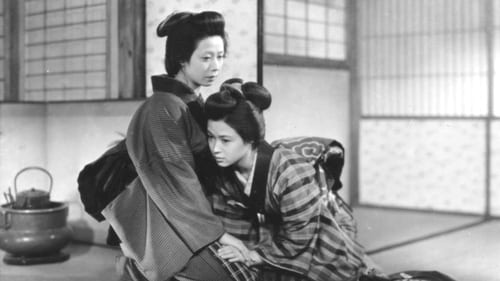
Set in the 1860s, the final years of the Tokugawa Shogunate, The Fireflies focuses on Tose (Awashima Chikage), the mistress of the Teradaya, a small inn in the Kyoto suburb of Fushimi. She does not have an easy life. Her husband, Isuke (Ban Junzaburo), is a wastrel who fancies himself a kabuki singer and who is obsessed with cleanliness. Her mother-in-law, Sada (Miyoshi Eiko) dislikes her because of her humble origins (her family are farmers) and because she fears that she will inherit the inn instead of Sugi, her daughter. Sada's hopes for Sugi, however, are dashed when she runs off with a con artist and leaves her child behind for Tose to take care of. When Sada becomes seriously ill, it is Tose who nurses her. On her deathbed, Sada asks her daughter-in-law's forgiveness. Meanwhile Isuke spends most of his time with a mistress he has taken, forcing Tose to manage the inn by herself

Fugetsusai
In the Tokugawa Era, the clan of Lord Yagyu has hidden away three scrolls containing clan secrets which, if revealed, would cause revolution and disaster for the clan. The information is divided among the three scrolls, all of which must be possessed for the secrets to be understood. When Princess Yuhime steals the scrolls, Tasaburo, a samurai with magical powers, and his brother Senshiro are sent to retrieve them. In Part II, the search for the scrolls continues.
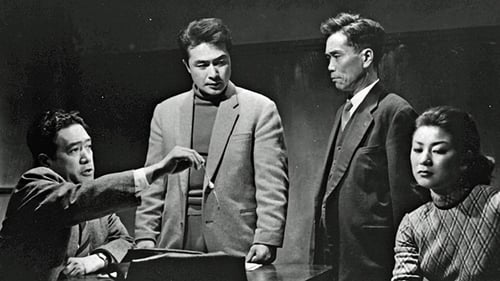
After discovering a slaughtered corpse, the investigating team of the Tokyo Metropolitan Police Department began canvassing the area around the crime scene. As a result, they found a wallet with bloodstains that seemed to belong to the victim, a woman's wallet that did not fit the field, earrings, and other valuable materials, which led them on a foot search. The woman's purse had been picked up by a male prostitute on the subway, and from the prostitute's testimony, they were able to identify the pickpocket's face, but the next day, the man was found dead in a road accident, apparently murdered.
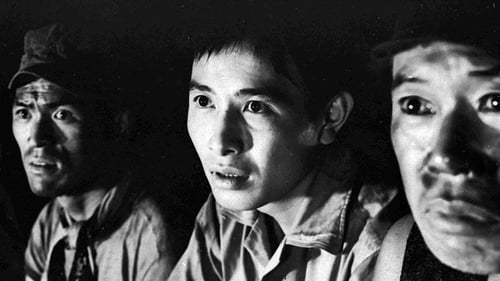
Based on a 1956 television feature on Japan’s national network, NHK, this is one of Uchida’s rarest films. A socially conscious drama with a contemporary backdrop, Dotanba focuses on the attempts to rescue a group of trapped miners. The title is a figure of speech — (essentially “last minute” or “eleventh hour”) — that refers to a situation of peril. The film boasts a script co-written by Uchida and Akira Kurosawa’s frequent screenwriter, Shinobu Hashimoto, and stars Kurosawa’s frequent star Takashi Shimura.

Kurihara
The story follows a university student who moves into an apartment building and becomes involved with a waitress. The landlord then attempts to evict the tenants and sell the building through illicit means.

Junai Monogatari AKA Story of Pure Love is about two poor youths, Mitsuko and Kando, rebelling against society in various ways, who are desperately trying to be together despite tortuous circumstances. The film depicts their lives as thieves, menial laborers who can get little pay, society outcasts, and of course, lovers. Junai Monogatari depicts, mostly, their struggles within the Japanese reformatory system and Mitsuko's worsening sickness.
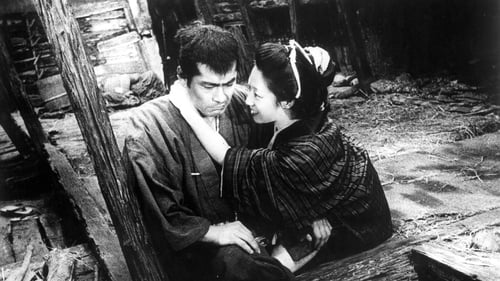
Tomekichi the Tinker
Residents of a rundown boardinghouse in 19th-century Japan, including a mysterious old man and an aging actor, get drawn into a love triangle that turns violent. When amoral thief Sutekichi breaks off his affair with landlady Osugi to romance her younger sister, Okayo, Osugi extracts her revenge by revealing her infidelity to her jealous husband.
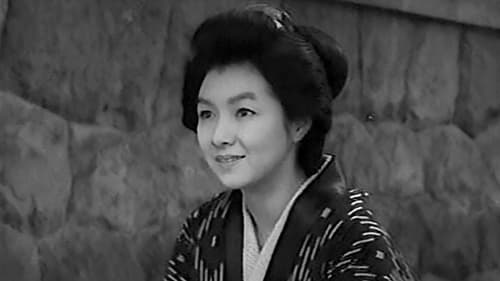
Oshima's father
A woman marries, gives birth to a stillborn child, and divorces, falls in love with a hotel-keeper, only to find herself subordinated to his drive for success, takes up with a tailor who cannot console himself with her strong personality.

Fugetsusai
In the Tokugawa Era, the clan of Lord Yagyu has hidden away three scrolls containing clan secrets which, if revealed, would cause revolution and disaster for the clan. The information is divided among the three scrolls, all of which must be possessed for the secrets to be understood. When Princess Yuhime steals the scrolls, Tasaburo, a samurai with magical powers, and his brother Senshiro are sent to retrieve them.

Gonzaemon Hoshino
A poor peasant, after years of scraping, becomes a rich and powerful Osaka merchant. Mizoguchi Kenji's final project; he died before completing it and directing duties turned over to Yoshimura Kozaburo.

A touching story depicting the harsh lives of farmers in Kasumigaura. An attempt to start a fishery business to revive an ailing farming community creates friction amongst the proud residents.
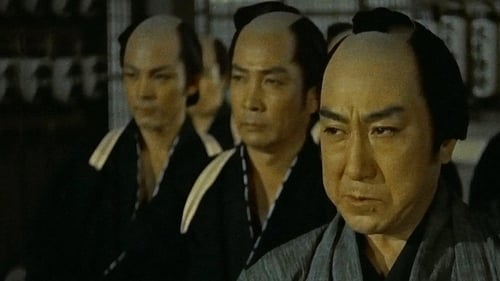
Kansuke
An all-star cast highlights this Jidai-Geki classic. Set in the samurai era, this is the tale of period Yakuza. One of the real classics in this genre. In this dramatic portrayal of the real-life gambling boss Jirocho, a good-hearted and honest boss sets out to take revenge for a fellow boss. At the same time, the other local bosses, in a bid to increase their own power, plot to dispose of Jirocho. Starring Kataoka Chiezo in one of his signature roles, this is an excellent portrayal of a figure who is not well known outside of Japan. Co-starring Nakamura Kinnosuke, this exciting tale of period yakuza brings history to life.

Based on Kakuko Mori's autobiography, about her life and retirement from acting due to her increasing blindness.
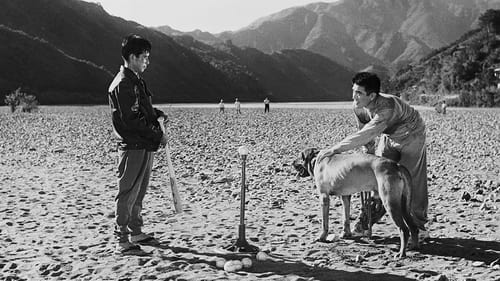
Ogushi
A talent scout moves sharply, dead-set on signing a promising athlete to the baseball team the Toyko Flowers.

A young woman marries someone else, but cannot forget her first lover.
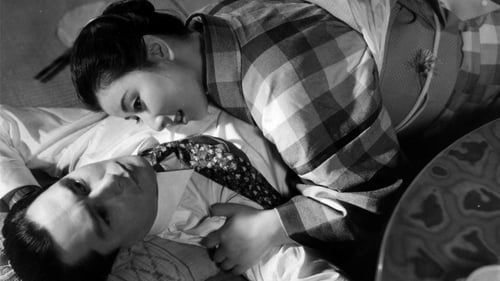
Yujiro Funaki
In Kyoto a young kimono maker with traditional ideas gets involved with a married professor.

The story of a novelist whose wife is confined in a mental hospital. His love for her drives him to write about her, though he runs into trouble when her parents accuse him of cashing in on her misfortune.

Lavish Japanese-Chinese coproduction based on an ancient Chinese legend about a man who falls in love with a snake goddess in human form.

Early film by Kenji Misumi.
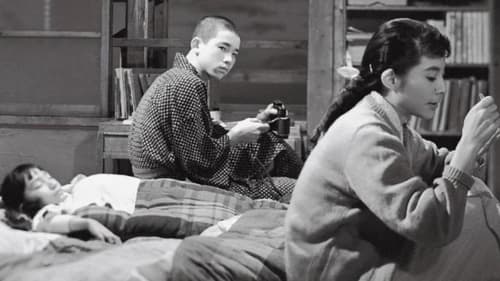
Yôichi's father, Genkichi
A coming-of-age story portrayed as the loss of all youthful illusions. Sixteen-year-old Yoichi dreams of becoming a sailor. His parents are fishmongers, and Yoichi lives together with them and his four siblings in cramped living conditions. His beloved younger sister is given to a wealthy, childless uncle; his best friend moves away; the girl he fell in love with from afar is with someone else: little by little, Yoichi loses all the people that are important to him.

Tetsuzô Ibuki / Shunsaku Etô
The story of a professional nude model stalked by a bizarre, unknown man wearing a hideous mask.

Takuetsu
Horror film directed by Toshikazu Kôno.
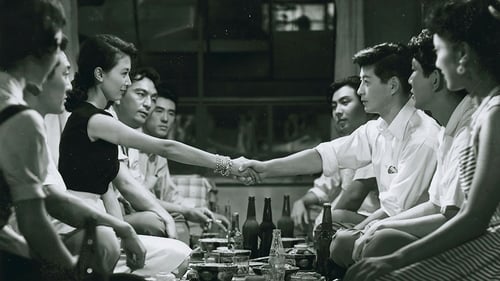
Tokichi Hattori
A young salary man and his wife struggle within the confines of their passionless relationship while he has an extramarital affair.
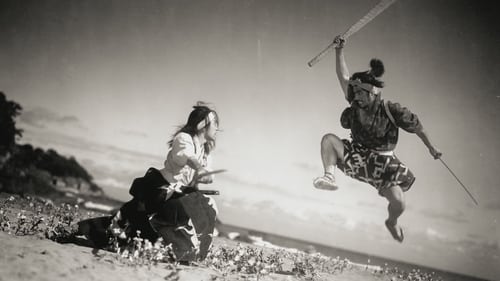
Baiken Shishido (uncredited)
A humble and simple Takezo abandons his life as a knight errant. He's sought as a teacher and vassal by Shogun, Japan's most powerful clan leader. He's also challenged to fight by the supremely confident and skillful Sasaki Kojiro. Takezo agrees to fight Kojiro in a year's time but rejects Shogun's patronage, choosing instead to live on the edge of a village, raising vegetables. He's followed there by Otsu and later by Akemi, both in love with him. The year ends as Takezo assists the villagers against a band of brigands. He seeks Otsu's forgiveness and accepts her love, then sets off across the water to Ganryu Island for his final contest.
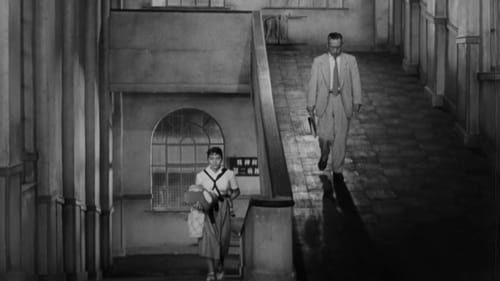
Old man from Brazil
Kiichi Nakajima, an elderly foundry owner, is convinced that Japan will be affected by an imminent nuclear war, and resolves to move his family to safety in Brazil. His family decides to have him ruled incompetent and Dr. Harada, a Domestic Court counselor, attempts to arbitrate.

"A unique left-wing comedy by Yamamoto.... A travelling theater troupe, led by Umagoro Ichikawa, comes to play in a mining town, and manages to sell every seat. Before the play begins, however, a miners' strike is announced, creating an uproar. In addition, the players find they have been cheated out of their profits by a crooked impresario. The socially naive actors join together with the progressive union members to create a political 'strike drama,' and learn much from each other in the process." --Alan Poul, Japan Society
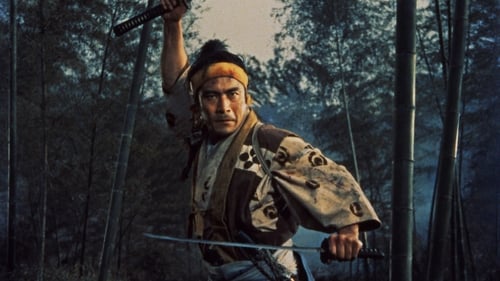
Baiken Shishido
After years on the road establishing his reputation as Japan's greatest fencer, Takezo returns to Kyoto. Otsu waits for him, yet he has come not for her but to challenge the leader of the region's finest school of fencing. To prove his valor and skill, he walks deliberately into ambushes set up by the school's followers. While Otsu waits, Akemi also seeks him, expressing her desires directly. Meanwhile, Takezo is observed by Sasaki Kojiro, a brilliant young fighter, confident he can dethrone Takezo. After leaving Kyoto in triumph, Takezo declares his love for Otsu, but in a way that dishonors her and shames him. Once again, he leaves alone.
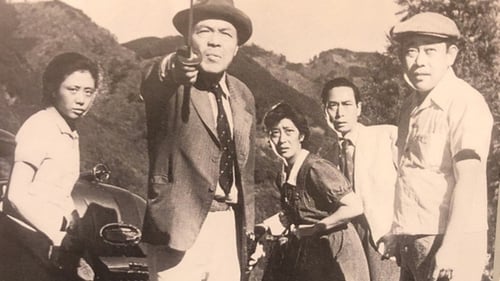
A group of five rookie insurance salespersons, driven to desperation by the impossibility of their work in Japan's failing postwar economy, form a plan to rob a cash delivery truck in order to provide for their families.

One of the earliest Japanese cop films following a mysterious killing on the last train to Mitaka, Tokyo.
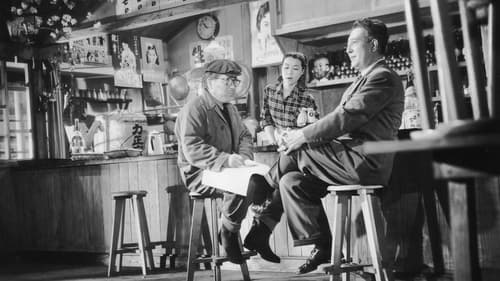
Onizuka
Takes place in one place, a beer hall, over the course of one evening. Uchida employs this concentration of setting and time to fashion a microcosm for a group portrait of Japan. One by one, the regulars of the bar appear: the pianist who dreams of becoming a composer but has disappeared from the music world after a knifing; a stripper who had planned to be a ballet dancer; an elderly painter trying to make a living at pachinko, and who rues his art having been used for militarist propaganda during the war; a young waitress considering elopement; a colonel turned real estate broker who attempts to rouse the crowd in military song until he realizes the tune has been transformed by marchers in the street into a leftist chant. The "twilight" is more than just a time of day; here, it is a state of being, a suspension between past and present, between the camaraderie of the saloon and the harsh world outside.
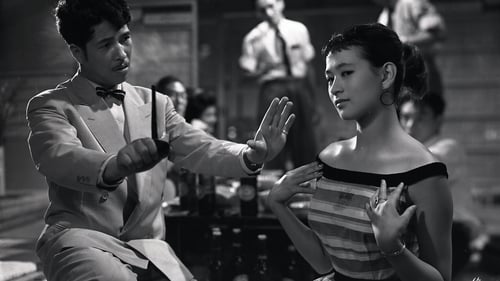
Jozo Araki
The female members of the family of the Minister of Health and Welfare, who has just proposed a program of birth control, become pregnant one after the other. - Nikkatsu

The story of a group of young people who organise their own travelling symphony orchestra to provide music for people living in remote villages shortly after the war.

Old man Murata
Lending money, job hunting for civilians and babysitting. All these things are usually not listed on a policeman's job description. But for the officers of this local police station, it‘s part of their daily routine. One day, patrolman Yoshii (Hisaya Morishige) finds an abandoned baby and a six year old girl standing in front of the station. When he's declined by the welfare office, orphanage and local health clinic to take them in, he decides to take care of them himself.

Three young women make a suicide pact, but they grow to have a better understanding of themselves.

After Shuichiro moved to Tokyo, the Tanno family became completely female, including Mrs. Tanno, Shuichiro's daughter-in-law Manzuko, painter Takashiro Egi, Shizu Kazemaki, Mitsue Nanbu, an intellectual who works in a university laboratory, and an old woman.

Schoolmaster
Lonely youth Shinji meets Hatsue, a pretty pearl diver, on the beach and the two fall in love. But Shinji has a rival for Hatsue's affections, Yasuo.

A reporter Takuo, who is sleeping in the newspaper room of the Maichō newspaper company, receives a sudden report from a reporter that the missing Akiyama JNR president was found dead.

President Kunio

Kidnapper
A samurai answers a village's request for protection after he falls on hard times. The town needs protection from bandits, so the samurai gathers six others to help him teach the people how to defend themselves, and the villagers provide the soldiers with food.

The Glorious Days
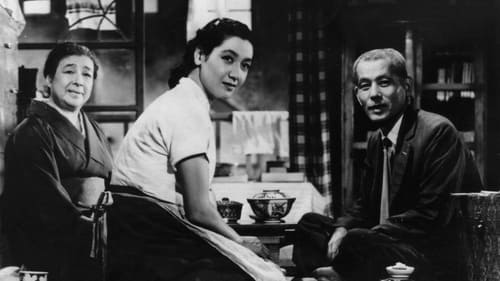
Sanpei Numata
The elderly Shukishi and his wife, Tomi, take the long journey from their small seaside village to visit their adult children in Tokyo. Their elder son, Koichi, a doctor, and their daughter, Shige, a hairdresser, don't have much time to spend with their aged parents, and so it falls to Noriko, the widow of their younger son who was killed in the war, to keep her in-laws company.

Suezo
A young woman, who must support her father as a middle-aged man's mistress, finds herself falling in love with a student closer to her age.

Nakamura, a policeman
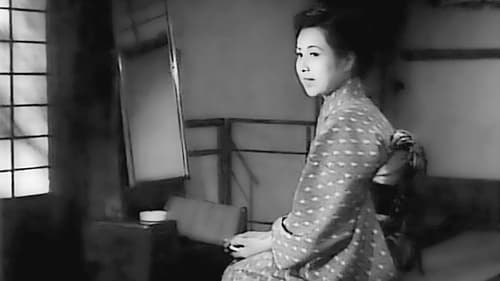
Ten years into a marriage, the wife is disappointed by the husband's lack of financial success, meaning she has to work and can't treat herself and the husband finds the wife slovenly and mean-spirited: she neither cooks not cleans particularly well and is generally disagreeable. In turn, he alternately ignores her and treats her as a servant. Neither is particularly happy, not helped by their unsatisfactory lodgers. The husband is easily seduced by an ex-colleague, a widow with a small child who needs some security, and considers leaving his wife.

Film directed by Shima Koji and starring Wakao Ayako

Kozo Kawai

Jurota
The picture belongs to the jidai gekki (historic) genre. It is a powerful story of violence and eroticism, picturing a world at once sordid and poetic, with two central themes which intermingle to compound an admirable panel of a critical period in Japanese history: the great famine in the mid 19th Century.
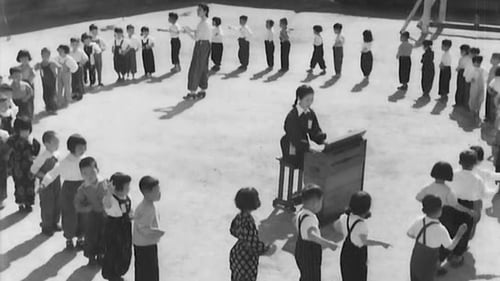
Shows the devastation caused by the atomic bomb, and by use of a fictional storyline, portrays the struggle of the ordinary Japanese people in dealing with the aftermath.
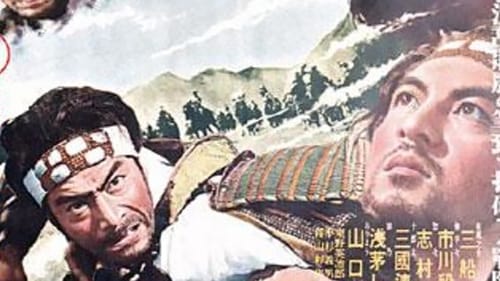
Soldiers Hayate and Yaheiji secretly escape from their besieged castle. Hayate has left behind his lover, Kano. On his way, Hayate is wounded and cared for by O’Ryo, who falls in love with him. But when Hayate accidentally kills her caretaker, he flees, with O’Ryo in pursuit. Subsequently, Hayate's comrade Yaheiji falls in love with Oryo. Kano, the lover left behind by Hayate, believes him dead, and becomes involved with another soldier, Jurota. When Jurota defects to the opposing army, he takes Kano with him. A double set of love triangles has developed, wherein each man and each woman loves one and is loved by another. Finally only combat and self-sacrifice can untangle the weave.

A story of a passionate teacher and his great effort for the children in a poor village.

Sakichi Arakawa
Bittersweet shomin-geki drama by Keigo Kimura
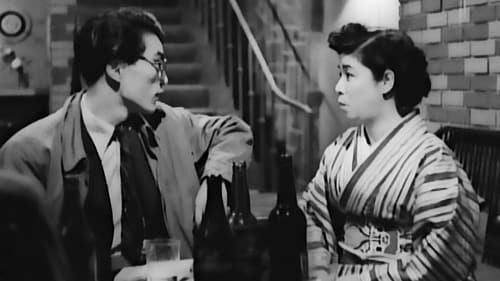
Hyôbei Sugano
A luckless geisha struggles to make a living for herself and her young son.

Jidai-geki about the life of Yasubei Nakayama, a famous ronin who did participate in the revenge against Lord Kira Yoshinaka as detailed in Japan's famous epic Chushingura
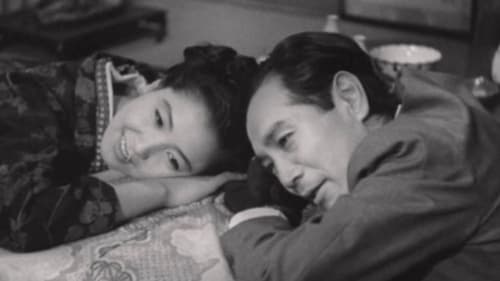
A joint project by Sojiro Motoki and Tomoyuki Tanaka, co-dramatizing the original story by Shu Sekikawa with Senkichi Taniguchi and Kenro Matsuura. The fur of a stray dog, the double-barreled gun tied to the backpack, the beard covered with tanned leather, and the bottom of the snow-burnt shining eyes, for the first time in thirteen years, these reached out to the bottom of society. Genji Iwaki dreamed of reuniting with his first love, Tsukie Shiina, with a huge amount of gold dust. To hand over half of the gold dust, he appeared in the memorable N city from the mountains of Teshio with the hope of seeing his late colleague's son, Ichiro Akutsu...

1950 Toho film directed by Senkichi Taniguchi
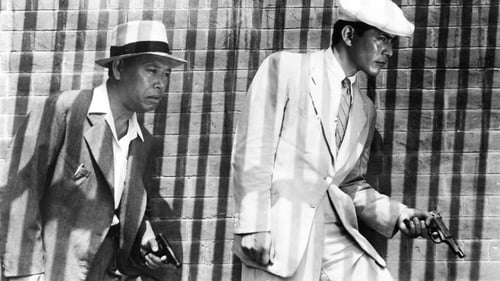
A bad day gets worse for young detective Murakami when a pickpocket steals his gun on a hot, crowded bus. Desperate to right the wrong, he goes undercover, scavenging Tokyo’s sweltering streets for the stray dog whose desperation has led him to a life of crime. With each step, cop and criminal’s lives become more intertwined and the investigation becomes an examination of Murakami’s own dark side.

Japanese mystery thriller.
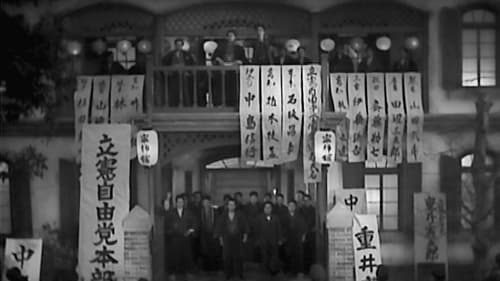
State Councillor Itô
A woman's struggle for equality in Japan in the 1880s. Eiko Hirayama leaves Okayama for Tokyo, where she helps the fledgling Liberal Party and falls in love with its leader Kentaro Omoi, just as the party is being disbanded by the government.
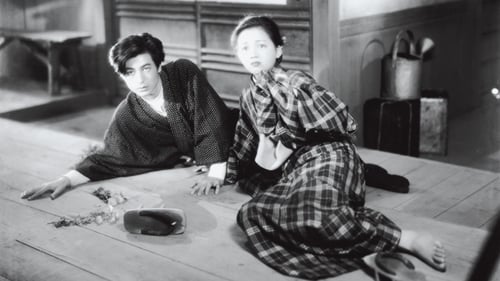
A teacher at a Japanese school tries to hide his outcast upbringing.
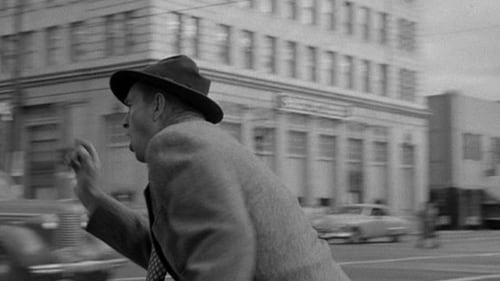
Yoshii
Four unlucky pirates head to a weather tracking station set on a remote island with the intention of holding the weather trackers as hostages and assaulting their next incoming supply ship; but at the station they are told that a serious typhoon is on the way, so the ship will be delayed.
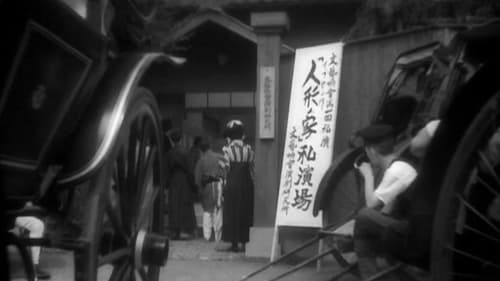
The stage director Shimamura, who is bringing western theatre to Japan, falls in love with the outspoken actress Sumako Matsui, and leaves his family to be with her, while trying to keep his Art Theatre solvent.

Fumie's father
In postwar Japan a young woman is unable to marry her sweetheart because her family's in difficult circumstances and needs her income to keep afloat.
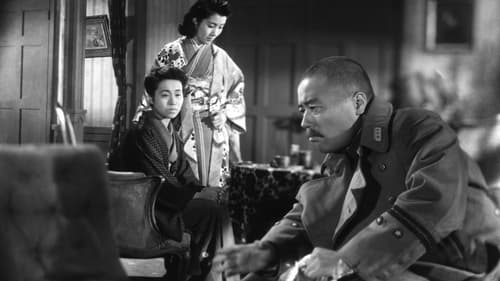
Ippei Yamaka
A Japanese family weathers much hardship after their military uncle comes to live with them during WWII.

Japanese war movie.

Sakuragi
A widow raises her sickly son to be strong enough to join the army and fight on the front lines.
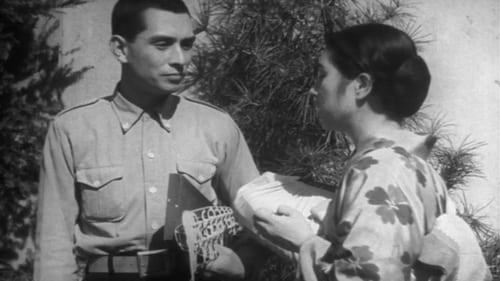
Shingo’s father
The few residents left on the streets in Tokyo share their individual stories and come to understand the melancholy of saying goodbye.

Japanese Warmovie
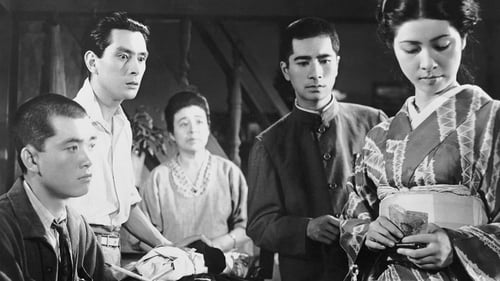
Hayashida
The sweet but naive denizens of a charming port town are hoodwinked by a couple of con men at the outset of World War II. But the hustlers’ plan backfires when they come down with severe cases of conscience. Keisuke Kinoshita’s directorial debut is a breezy, warmhearted, and often very funny crowd-pleaser that’s a testament to the filmmaker’s faith in people.
